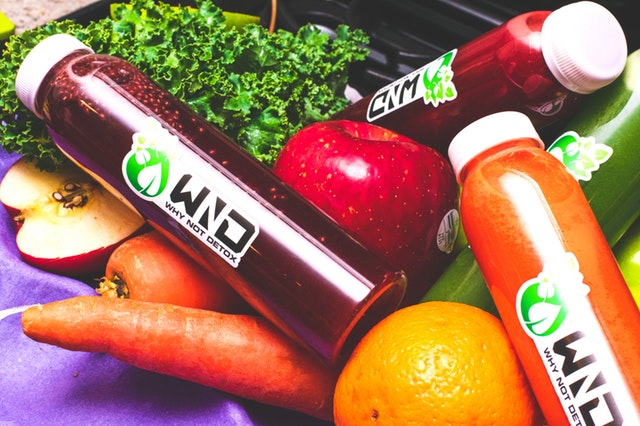Improve Brain Health and Stroke Recovery with these 7 Essential Nutrients

Figuring out what the best foods to take for brain health or faster stroke recovery are? Here is a list of essential nutrients for adequate brain and stroke recovery. Before considering all of these, make sure to have your doctor’s approval first.
Vitamin D
The Journal of Clinical and Diagnostic Research stated that ischemic stroke—a kind of stroke resulted to a clogged artery in the brain—is highly influenced by a low level of vitamin D. Deficiency of this vitamin results to hypertension, obesity, and diabetes, which are all related to stroke.
Vitamin D provides osteoprotective, neuromuscular, and neuroprotective benefits. Hence, getting daily Vitamin D can protect bones, muscles, and brain; recover one’s brain damage, and prevent stroke.
Known as the sunshine vitamin, Vitamin D can be synthesized naturally from sun exposure during off-peak hours, typically before 10:00 in the morning and after 4:00 in the afternoon/evening. If there are medical restrictions that prohibit you from getting exposed from the sun, dietary sources like egg yolks, cheese, and fatty fish can serve as alternatives.
Omega-3 Fatty Acids
Nick English’s take on meal replacements involves considering omega-3 fatty acids as essential to one’s health. In contrast to what saturated fat does to one’s brain, omega-3 fatty acids prevent reduced plasticity and impaired learning after a traumatic brain injury, and normalize the brain-derived neurotrophic factor (BDNF) levels.
Docosahexaenoic acid (DHA) and Eicosapentaenoic acid (EPA) are two omega-3 fatty acids that support brain function, reduce inflammation and risk of heart diseases. One pharmacological research also claimed that DHA has positive effects on hypertension and atherosclerosis, which are both stroke risk factors.
Fish oil is rich in DHA and EPA. These two fatty acids cannot be produced on their own, so they need to get them from other dietary sources or supplements. Other sources of omega 3’s are egg yolks, flaxseeds, chia seeds, hemp seeds, and salmon.
Vitamin B12
Dr. Viatcheslav Wlassoff asserted that Vitamin B12 assists stroke recovery through neuroplasticity, which is the development and reformation of brain cells. Vitamin B12 improves the development of the brain and nerve cells and their proper functioning, making it an essential aspect of stroke recovery.
Vitamin B12 is primarily found in animal products like poultry, meat, fish, eggs, and milk. Sticking to lean sources such as poultry and fish is best when you have a history of stroke risk factors like atherosclerosis and high cholesterol.

Niacin/Vitamin B3
Also called Vitamin B3, Niacin boosts good cholesterol levels. Most stroke survivors are low of good cholesterols, so it is a must to have more Vitamin B3 intake. Moreover, it could also help to recover brain functions after stroke.
You can find Vitamin B3 in salmon, tuna, chicken, and turkey. If you are vegetarian and opt to have meatless meals, you can find it in peanuts and brown rice. However, make sure to have them in moderation or lesser quantities.
Vitamin C
Dr. Stephane Vannier mentioned that vitamin C deficiency is one of the risk factors for severe types of strokes like hemorrhagic stroke, a kind of stroke due to a burst artery in the brain or bleeding in the brain. Another study showed that stroke patients usually have lower levels of vitamin C than those healthy people.
Vitamin C can lower blood pressure, and maintain the health of blood vessels, preventing a stroke from happening. Not only from oranges, but you may also get Vitamin C from oranges, strawberries, bell peppers, and broccoli.
Probiotics
Probiotics are neither minerals nor vitamins. Instead, they are one of those good bacteria in your microbiome, consisting of 100 trillion small microbes inside your stomach. Every microbiome is consist of an enteric nervous system that communicates to one’s brain via the gut-brain axis.
Fermented foods like kefir (fermented milk), kimchi and sauerkraut (fermented cabbage), natto and tempeh (fermented soybeans), miso (fermented soybeans with fungi called koji), kombucha (fermented green or black tea), pickles, buttermilk, and yogurt are sources of probiotics. However, not all fermented food, especially with salt, are great for stroke patients.
Coenzyme Q10
Coenzyme Q10 (CoQ10) is good for brain and stroke recovery. It is a powerful antioxidant that protects tissues from being damaged by physical stress caused by free radicals like cardiovascular diseases, which are prominent precursors to stroke.
Not it can reduce the risk of a second stroke, but it is also well-known for promoting heart health. You can find CoQ10 from organs like heart, liver, kidney, and smaller amounts of it in cauliflower, broccoli, and spinach.
Takeaway
No extra funds for supplements? That is not a problem. What you simply need to do is to avoid processed foods as they strip off many significant vitamins and minerals, and eat a variety of whole foods every single day. That will assure you’re getting those essential nutrients.

